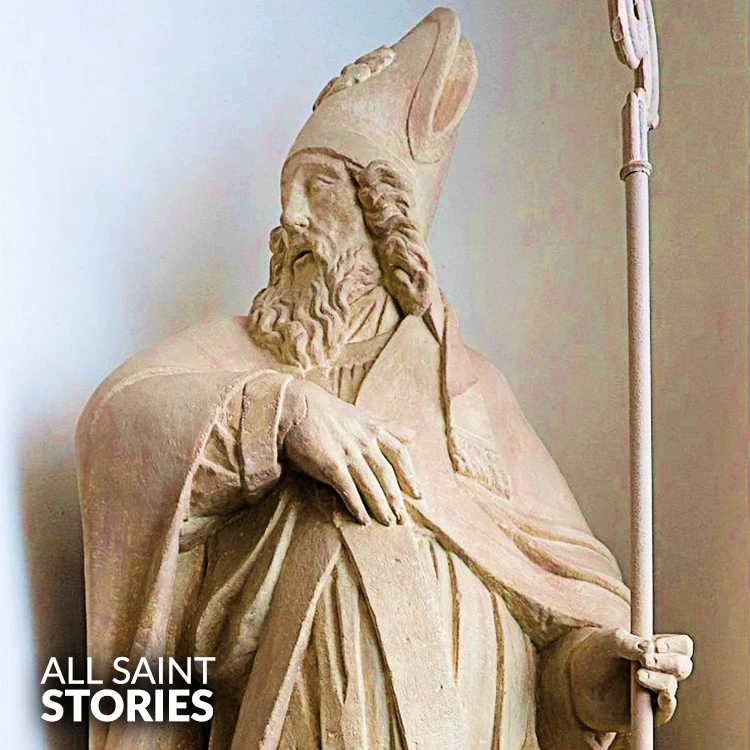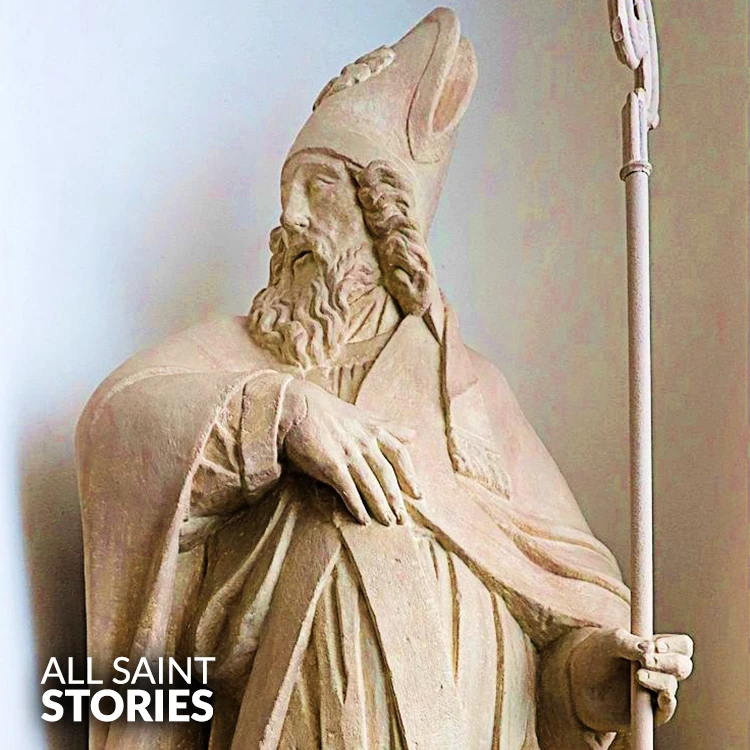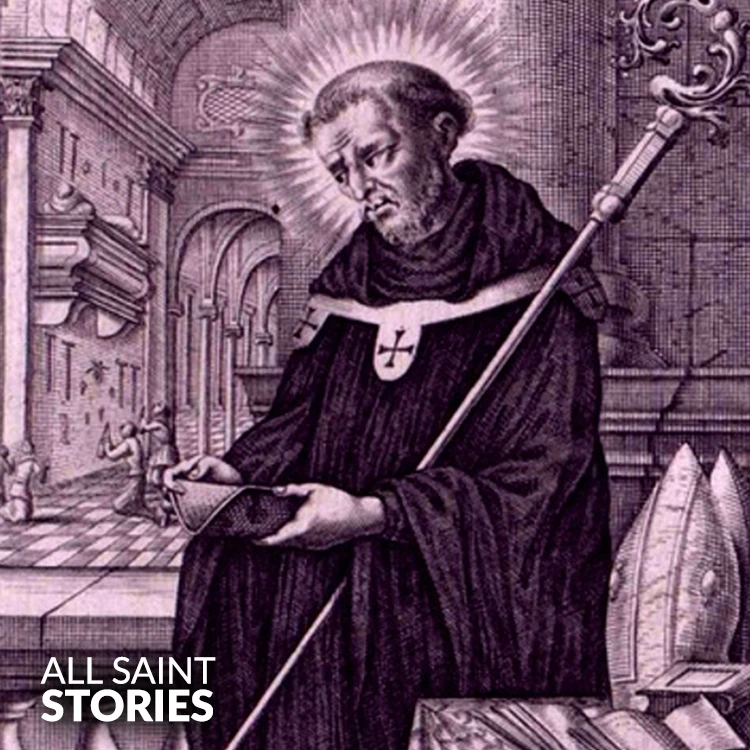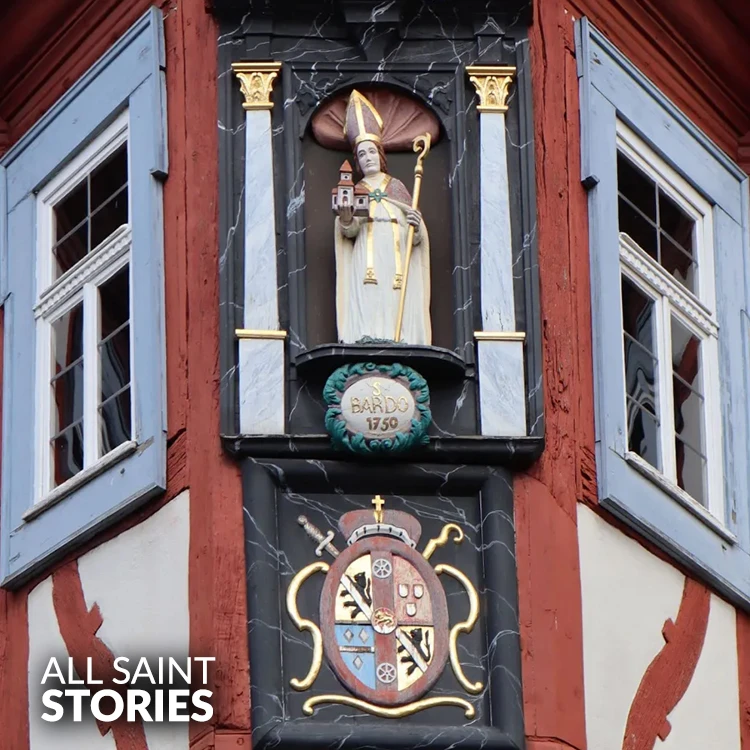Saint Bardo, intercessor of peace and wisdom, Guide us with your light and lead us on the path of righteousness. Help us find strength in times of trial and clarity in moments of doubt. May your example of faith inspire us to live with compassion and grace. Grant us your protection and your gentle spirit in all that we do. Amen.
ST. BARDO
ST. BARDO

St. Bardo of Mainz was a Benedictine monk and Archbishop of Mainz known for his ascetic lifestyle, deep humility, and service to the poor. He played a key role in completing and consecrating Mainz Cathedral. His feast day is observed on June 10.
St. Bardo was born in 982 into a noble family in what is now Germany. He received his early education at the Fulda Abbey, where he embraced the Benedictine monastic life. His devotion, discipline, and piety made him stand out among his peers. Over time, he was entrusted with greater responsibilities, eventually becoming abbot of Werden Abbey in 1029 and later Hersfeld Abbey in 1031.
Later that same year, Bardo was appointed Archbishop of Mainz, one of the most influential ecclesiastical positions in medieval Germany. As archbishop, he remained dedicated to the principles of monasticism, living a simple and humble life despite his high office. He was known for his deep concern for the poor, ensuring that charitable works were central to his mission. Many stories highlight his generosity, as he often distributed alms and personally cared for those in need.
A major event during his tenure was the completion and consecration of Mainz Cathedral in 1036, a significant religious and architectural milestone. The consecration ceremony was attended by Emperor Conrad II, reflecting the importance of the occasion. Bardo's leadership also extended beyond Mainz; he accompanied Emperor Henry III on military campaigns, providing spiritual support to soldiers and ensuring that Christian principles were upheld in times of war.
In 1049, he presided over the Synod of Mainz, addressing key issues such as simony and the discipline of the clergy. His efforts helped strengthen Church reform movements and maintain the integrity of ecclesiastical leadership.
Despite his prominent position, Bardo maintained an austere lifestyle, practicing rigorous self-discipline. It is said that Pope Leo IX advised him to moderate his ascetic practices for the sake of his health. His humility and devotion made a lasting impression on those who knew him.
Bardo passed away on June 10, either in 1051 or 1053, while traveling in Thuringia. He was buried in Mainz Cathedral, where his tomb became a site of veneration. Over time, his reputation for holiness grew, and he was remembered for his unwavering faith, dedication to the Church, and kindness toward the less fortunate.
Video Not Found
The information on this website is compiled from various trusted sources. While we aim for accuracy, some details may be incomplete or contain discrepancies.
If you notice any errors or have additional information about this saint, please use the form on the left to share your suggestions. Your input helps us improve and maintain reliable content for everyone.
All submissions are reviewed carefully, and your personal details will remain confidential. Thank you for contributing to the accuracy and value of this resource.
Credits & Acknowledgments
- Anudina Visudhar (Malayalam) – Life of Saints for Everyday
by Msgr. Thomas Moothedan, M.A., D.D. - Saint Companions for Each Day
by A. J. M. Mausolfe & J. K. Mausolfe - US Catholic (Faith in Real Life) – Informational articles
- Wikipedia – General reference content and images
- Anastpaul.com – Saint images and reflections
- Pravachaka Sabdam (Malayalam) – Saint-related content and insights
We sincerely thank these authors and platforms for their valuable contributions. If we have unintentionally missed any attribution, please notify us, and we will make the correction promptly.
If you have any suggestion about ST. BARDO
Your suggestion will help improve the information about this saint. Your details will not be disclosed anywhere.
© 2026 Copyright @ www.allsaintstories.com






 English
English
 Italian
Italian
 French
French
 Spanish
Spanish
 Malayalam
Malayalam
 Russian
Russian
 Korean
Korean
 Sinhala
Sinhala
 Japanese
Japanese
 Arabic
Arabic
 Portuguese
Portuguese
 Bantu
Bantu
 Greek
Greek
 German
German
 Dutch
Dutch
 Filipino
Filipino